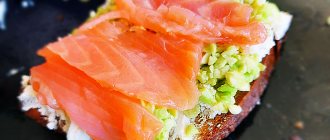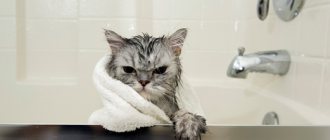Inexperienced owners of four-legged pets often wonder whether cats can be given milk. In this case, experts are unanimous that feeding cats with milk is prohibited, since they do not produce lactose to digest milk sugar.
But this is not typical for all cats. It's like a person is allergic to strawberries, some have it, some don't. Likewise among representatives of the cat world, some cats will drink milk every day and enjoy it, while another, after such joy, may not have time to run to the toilet, since the milk will cause her an attack of diarrhea.
Milk in a cat's diet
The cat feeds its kittens from birth to three months, while lactose is produced in the kittens' bodies. Enzyme for processing milk sugar. Gradually, the kitten begins to switch to adult food, replacing the mother's milk with solid food, meat or dry food.
Accordingly, the production of lactose is reduced, and this enzyme is replaced by protease, an enzyme for processing proteins. In this case, the cat gets what it wants and the owners are happy that they were able to pamper their pet. After all, milk is a treat for cats, and you can feed your cat milk every day.
The benefits and harms of dairy products for cats still have no clear assessment among veterinarians and felinologists, because representatives of the animal world in the wild do not consume it, so whether cats can have milk is an ambiguous question.
Of course, it contains a lot of calcium and nutrients, but it is very fatty, especially cow's milk. However, there is an opinion that it is the fatty acids that attract tailed fluffies in this drink. Thanks to fatty acids, cat treats acquire such a pleasant taste.
The dairy product contains lecithin, cholesterol, vitamin A and D, which take part in many hormonal processes, the formation of skin and hair.
However, it is impossible to give milk in its entirety, no matter what it is. After all, we do not have a complete list of necessary microelements for the life of pets. Moreover, if a cat eats only a milk drink, it can die.
Reviews from veterinarians and cat owners about feeding milk and fermented milk products
The Lord created milk for small children, kittens, puppies, etc. To digest milk, you need to have special bacteria in the intestines and stomach that do this work! I was very surprised when I once read the statistics that 70!!!!!! out of 100 adults can no longer drink milk! And this is not a pathology, but a norm, bacteria should disappear with age.. But this does not necessarily HAVE to happen, so the one who can digest it, let him drink to his health!! There is a mountain of calcium and other useful substances! And those who cannot digest it can drink fermented milk products, yogurt, kefir, etc…. This applies to both people and animals!! If the kitten does not suffer from diarrhea from milk, at least let him drink himself!! Otherwise, pamper yourself with some kefir! A young body really needs calcium to grow and have strong bones!!
Loshakoshkina's mother
https://www.catgallery.ru/forums/index.php?showtopic=8478
From dairy products, I give my cats fermented baked milk, 10% cream “House in the Village” and from time to time goat milk 2.5%.
Asia
https://mauforum.ru/viewtopic.php?p=605779
Dairy products are needed by cats on a natural diet. But it doesn't have to be milk. Cottage cheese, low-fat kefir, and yogurt are good. Milk can cause diarrhea in an adult cat. If this is not observed, then you should not deprive the kitten of a bowl of milk. Personally, my cat prefers milk to kefir - and you can’t argue with him. Offer other dairy products, let him choose. But this is only if you don’t decide to transfer it to industry. feed where the addition of milk may cause a nutritional imbalance.
Lady
https://forum.33cats.ru/index.php?topic=44.0
Dairy products should not be mixed with meat; they should be given as independent feeding; it is recommended to mix them only with vegetables, cereals, and eggs. As a result, we get generally accepted recommendations for feeding KMP: the daily norm of fermented milk products for an adult animal is 40–80 g fat content no more than 9%; the interval between feeding meat products is approximately 4 hours.
Cupid
https://www.britishcat.ru/forumnew/printthread.php?t=11049&pp=40
The experience of using it is positive, but we often use 3.5% HYLA UHT milk, less often 1.5% and sometimes at the request of the cat (we are “Siberians”) Lactose-free milk Valio Zero Lactose 1.5%. The taste is slightly sweet, but this is a cost because... “The lactase enzyme added to milk breaks down milk sugar (lactose) by 80%, i.e. hydrolyzes into easily digestible simple sugars glucose and galactose.” We also use it for food because... we have “indigestibility of ordinary milk”. From time to time I give my cat Natural Acidophilus Yogurt HYLA and Cottage Cheese HYLA 0.3%, also produced by Valio. The cat stopped making loose stools on dairy products of this production and type. Before this, we suffered a lot with goat milk, and he even refused to drink regular milk himself until I decided to share with him the HYLA I bought for myself.
Mirri_Mi
https://mauforum.ru/viewtopic.php?f=133&t=15549&sid=76b351ad89172528700fa9fc5fab35cf&start=10
For a kitten separated from its mother (and for normal development they must suckle for up to 2 months, and cow’s milk cannot replace cat’s milk), it is better to give not milk, but fermented milk products without sugar and all sorts of additives: kefir, natural. Yogut, cottage cheese (preferably soft so that you can lick it), you can add raw or boiled chicken yolk, or a whole quail egg to these products 1-2 times a week (3-6 times a week)
Jasmine
https://forum.bolen-kot.net.ru/index.php?showtopic=12824
There is an analogue of cat milk. Not an analogue, of course, but the pros feed kittens with this mixture. 100 g cream, 1 chicken egg yolk, honey on the tip of a knife or 5% glucose. This mixture is given to kittens and cats as needed. I used it and didn't see any problems. Another analogue is goat milk. Only whole and not the fattest. There is another solution: Royal Canin - powdered milk formula. Fully adapted and I have not yet seen better nutrition for kittens up to a month old. all this fuss is good when kittens do not have a mother and her milk. and so, well, unless you want to tinker. or you have your own goat in the yard. in fact, they need to learn something from something. not on the water











